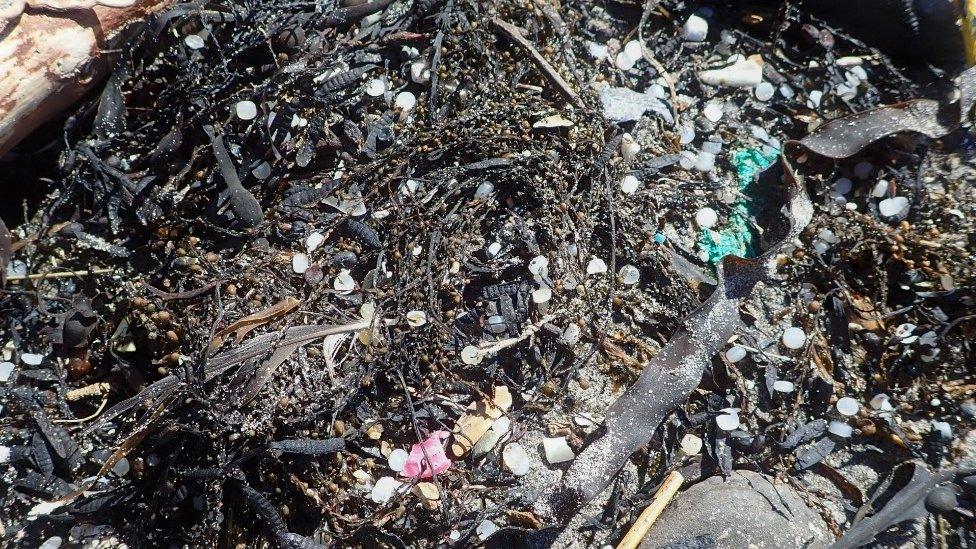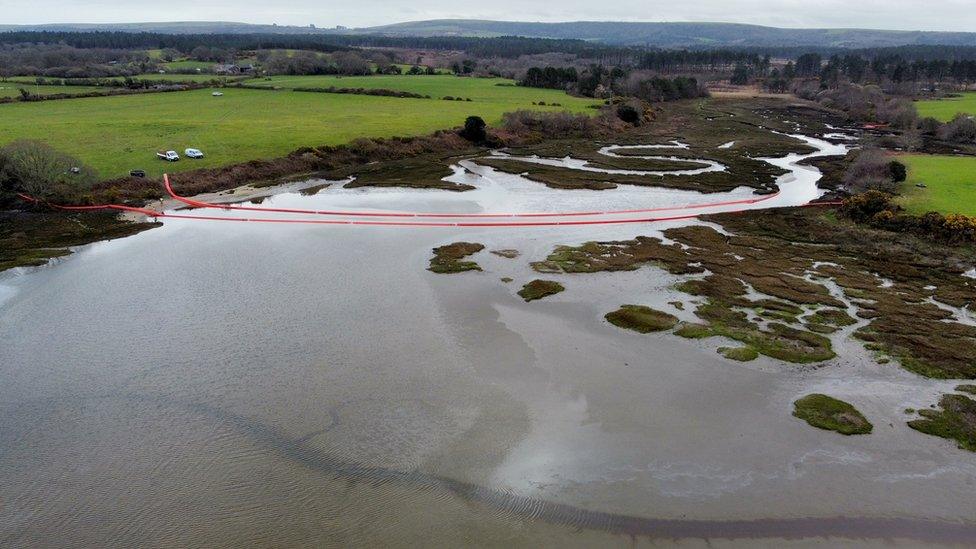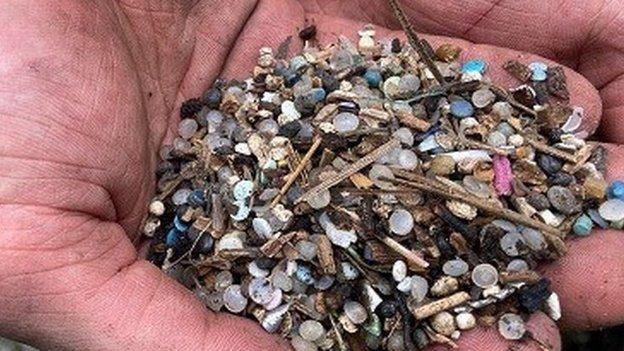Kimmeridge Bay: Wildlife trust describes nurdles as 'truly shocking'
- Published

The wildlife trust said people had been collecting handfuls of nurdles and bringing them to its Wild Seas Centre at the bay
A wildlife trust says a "truly shocking" amount of plastic pellets have been washing up on a beach.
Dorset Wildlife Trust said the white nurdles started washing up in large numbers at Kimmeridge Bay on Dorset's Jurassic Coast in the past few days.
The trust said: "We don't know where they have come from, but many people are collecting handfuls of them and bringing them to us for disposal."
The lentil-sized pellets are used as a raw material to make plastic products.
Julie Hatcher, wild seas centre officer, said "For many years, we have encouraged visitors to hunt for nurdles and hand pick them from the beach to help protect the important beach and shoreline wildlife.
"However, the number of nurdles currently on the beach has been truly shocking."
They can be fatal to marine wildlife as birds and fish often eat them.
The tiny pellets escape into the environment during the manufacture, transport or use of plastic products.

Follow BBC South on Facebook, external, Twitter, external, or Instagram, external. Send your story ideas to south.newsonline@bbc.co.uk, external
Related topics
- Published5 April 2023

- Published18 March 2023
